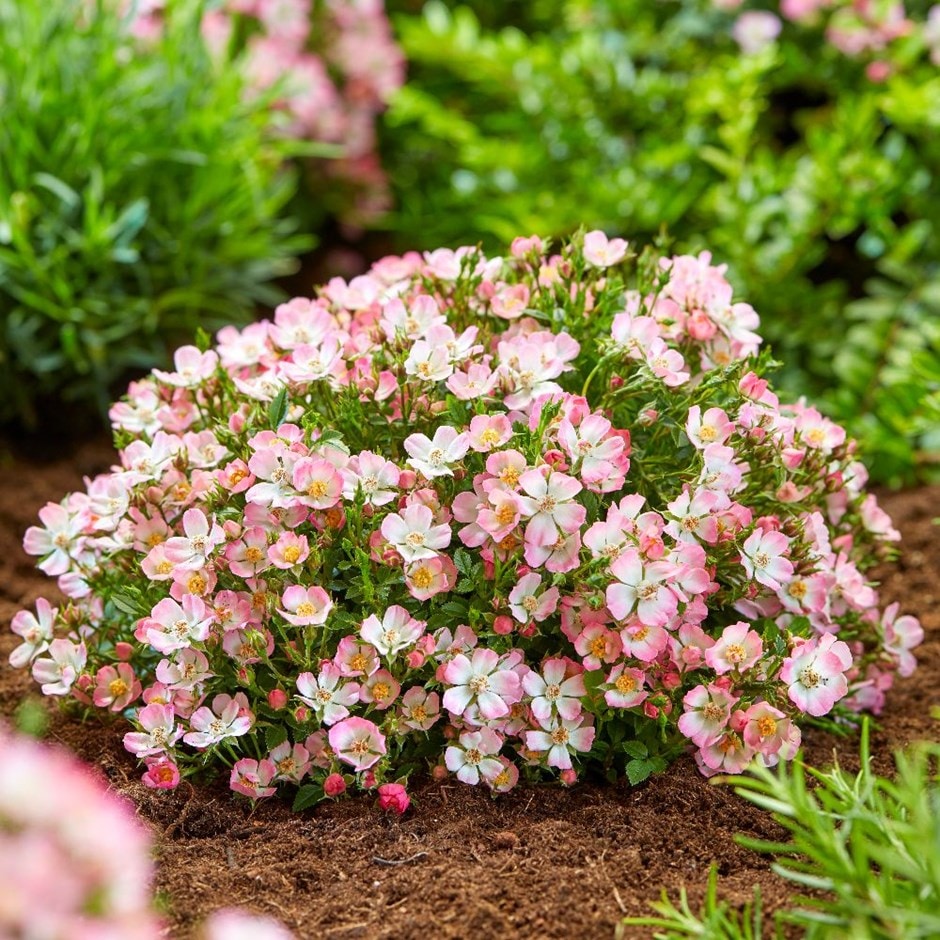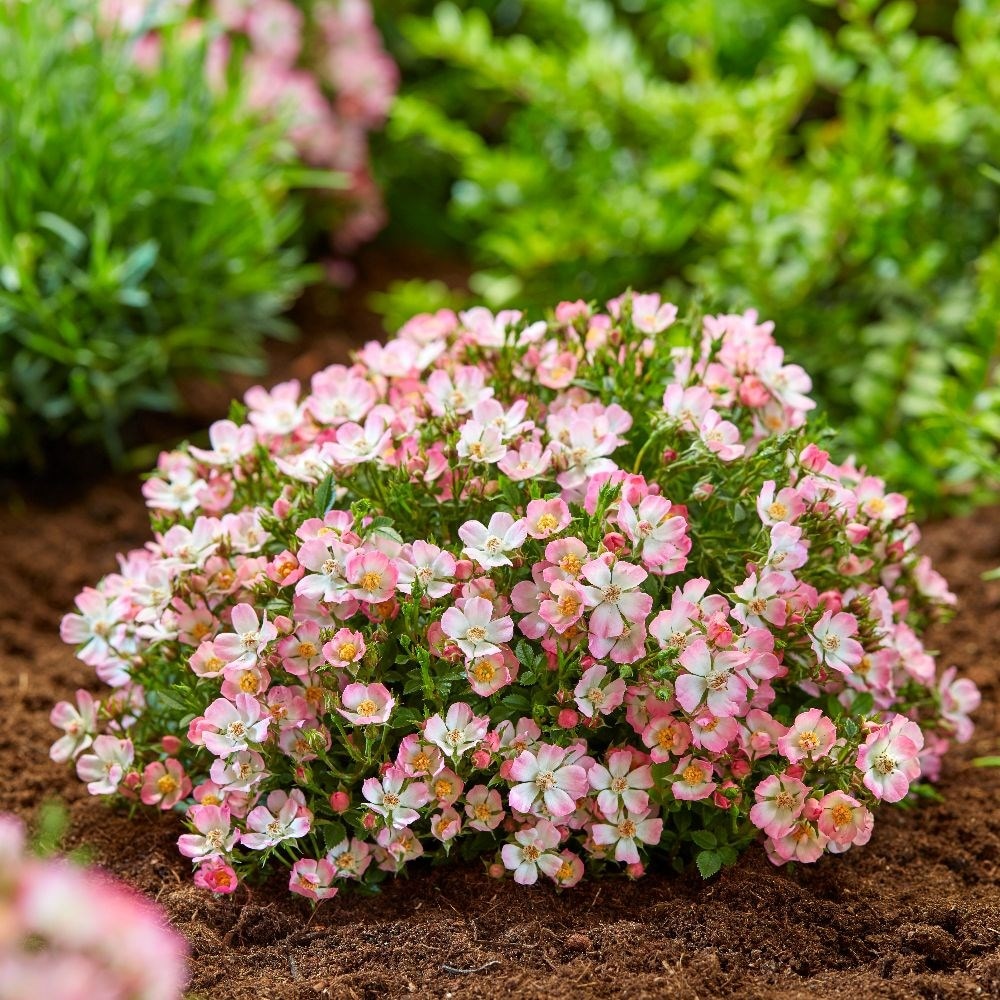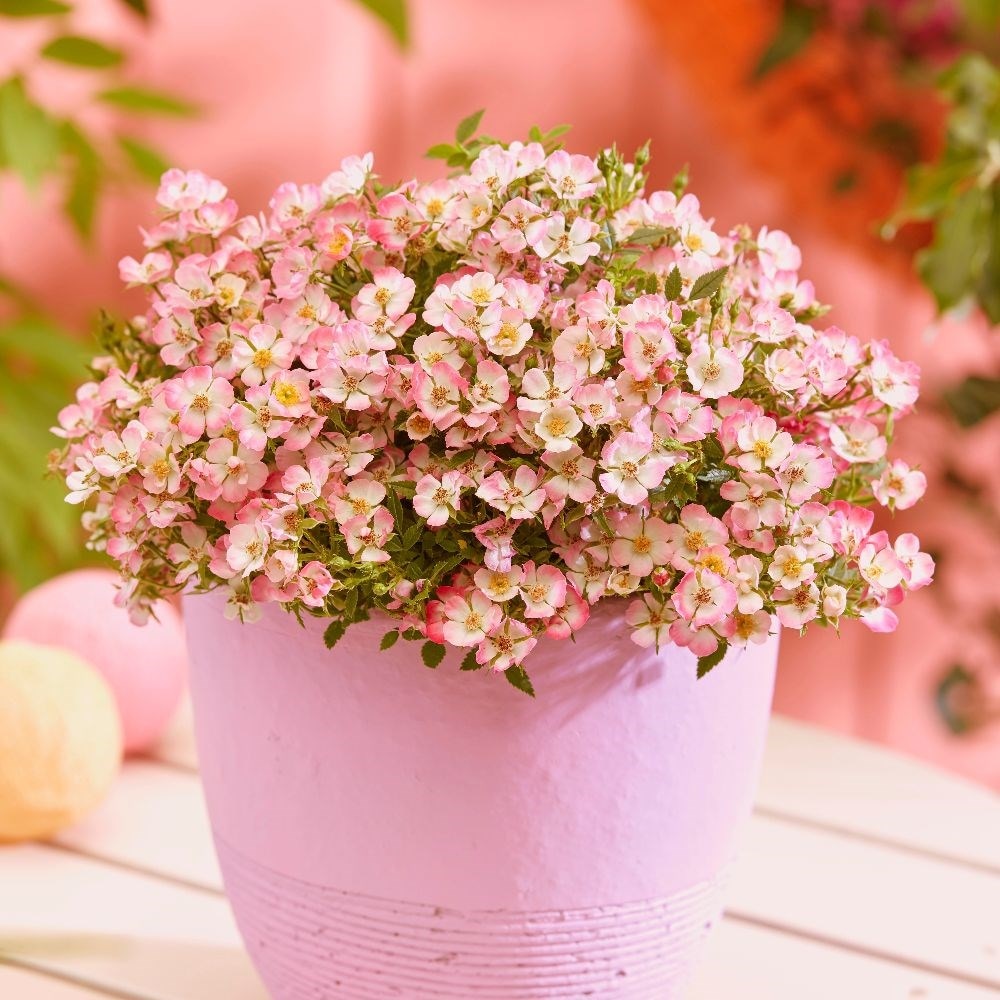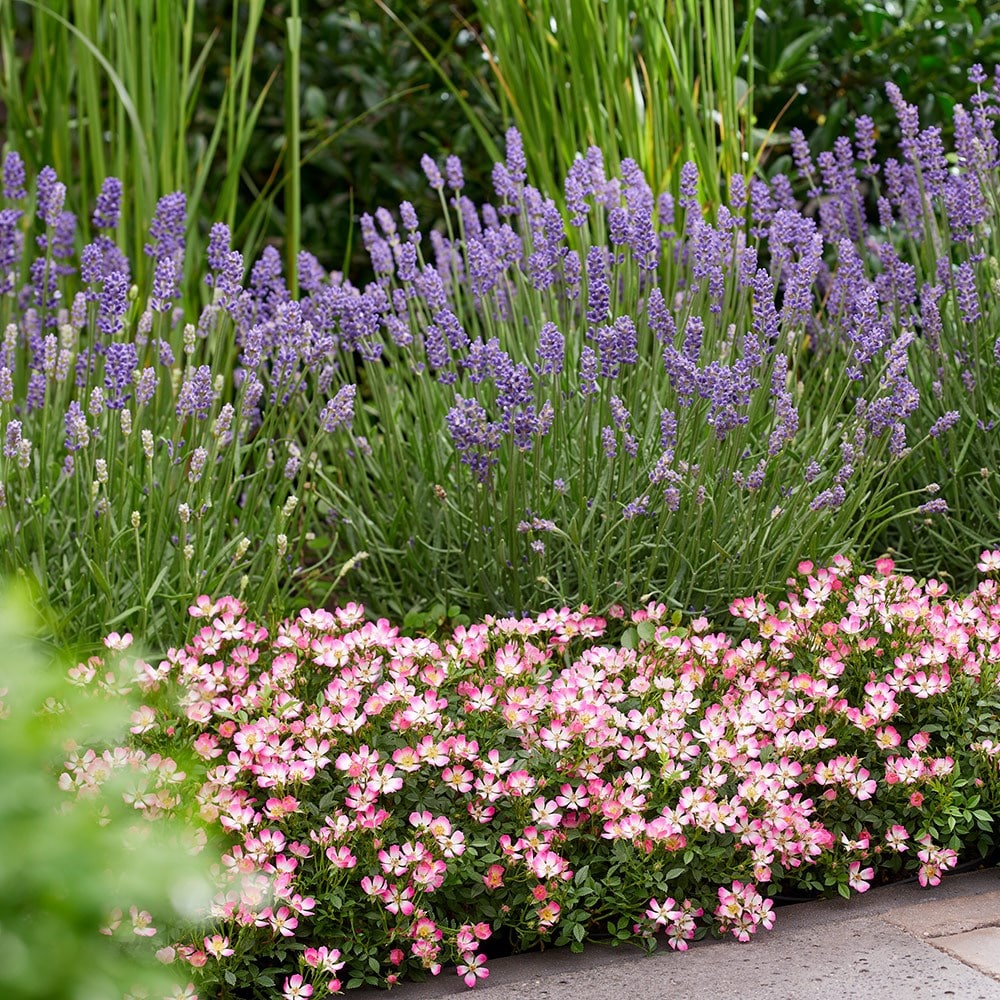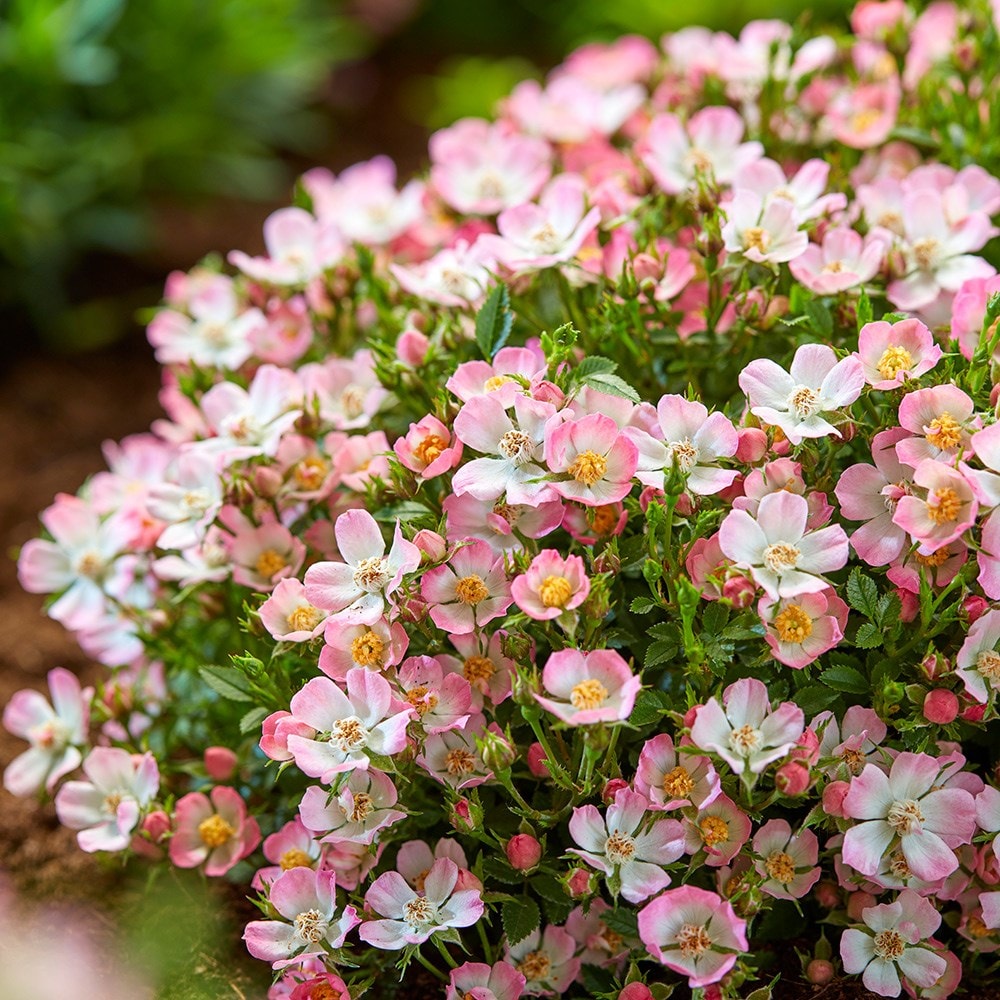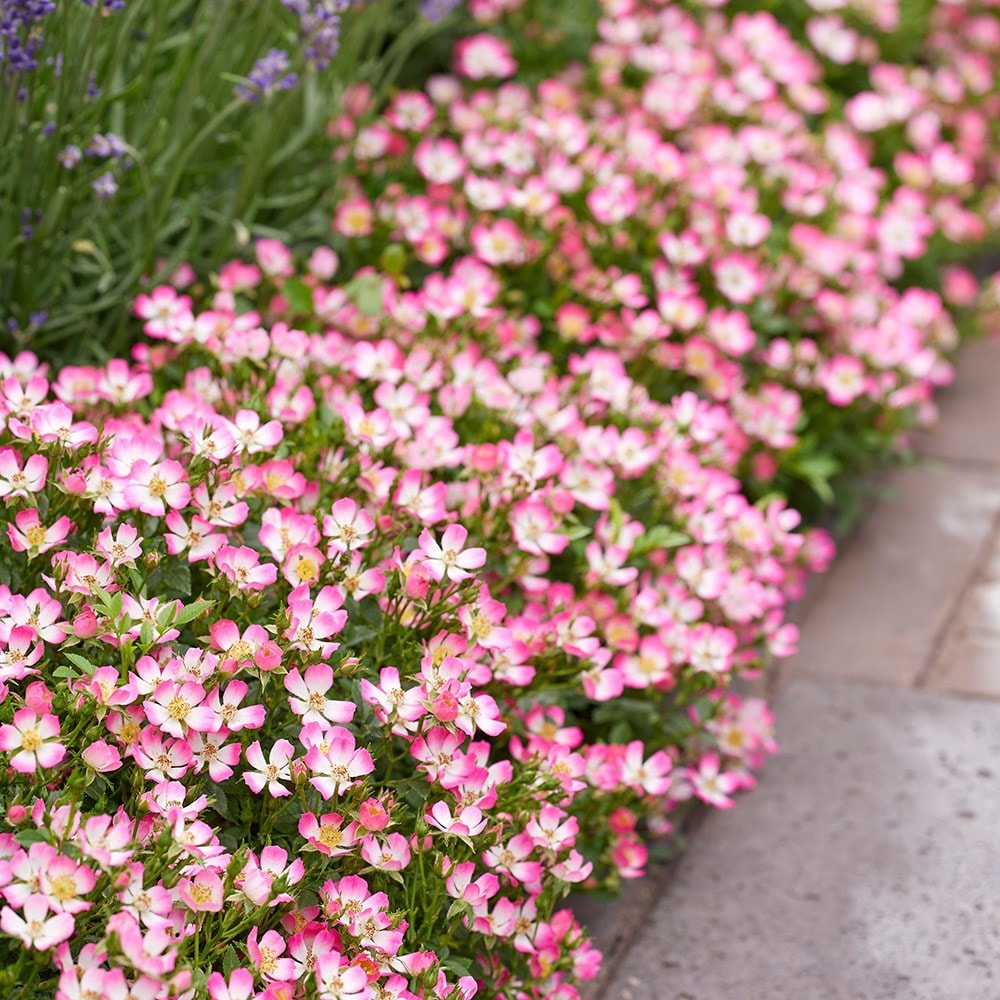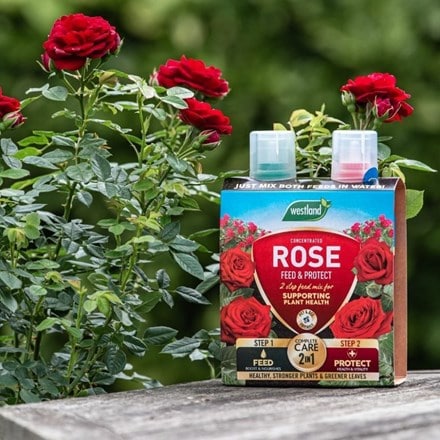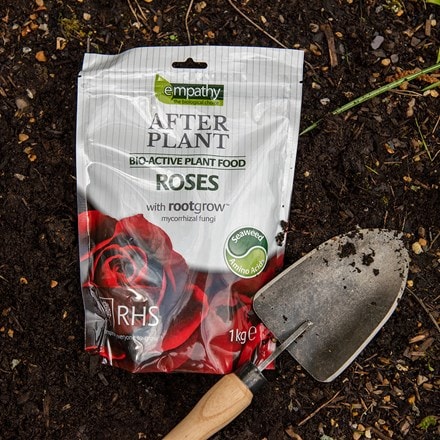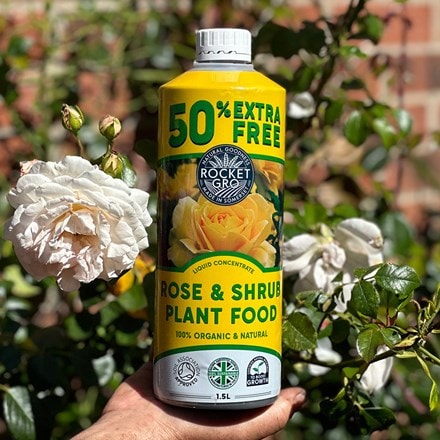Eventual height & spread
Rosa Cutie Pie ('ROP007') (PBR) | Shrub Rose
rose cutie pie (patio or ground cover rose)
- 2 litre pot
- £34.75
- available to order from spring
Delivery options
- Standard £5.99
- Position: full sun
- Soil: fertile, humus-rich, moist, well-drained soil
- Rate of growth: average
- Flowering period: July to September
- Hardiness: fully hardy
This compact, thornless rose is perfect for patio pots, edging paths, or filling the front of borders with a low, spreading mound of glossy green foliage.
Throughout summer, Rosa Cutie Pie produces masses of charming, apple-blossom-like flowers—white petals delicately edged in pink—that provide a long-lasting display. Its thorn-free stems make it ideal for gardens with children or for gifting as a fairly low-maintenance, cheerful potted plant.
Regular deadheading will encourage continuous flowering, ensuring this miniature rose remains a delightful feature all season long.
Please note that the pot in the photograph is not supplied with the plant (which is sent out in a simple nursery alternative), but we have a wide and wonderful range on our website to choose from.
Throughout summer, Rosa Cutie Pie produces masses of charming, apple-blossom-like flowers—white petals delicately edged in pink—that provide a long-lasting display. Its thorn-free stems make it ideal for gardens with children or for gifting as a fairly low-maintenance, cheerful potted plant.
Regular deadheading will encourage continuous flowering, ensuring this miniature rose remains a delightful feature all season long.
Please note that the pot in the photograph is not supplied with the plant (which is sent out in a simple nursery alternative), but we have a wide and wonderful range on our website to choose from.
If planting in winter, choose a frost-free spell when the soil is not frozen. Roses are quite deep-rooted plants so dig a deep hole roughly twice as wide as the plant’s roots and mix in a generous amount of composted organic matter. A top-dressing of a general purpose fertiliser can be worked into the surrounding soil and we also recommend using Rose Rootgrow at this stage to encourage better root development. This is particularly important when planting into a bed where roses have previously been grown as Rose Rootgrow is said to combat rose sickness (aka replant disease).
Remove the plants from their pots and gently spread out the roots before placing them in the centre of the hole. Try to ensure that the 'bud union' (the point where the cultivated rose has been grafted onto the rootstock, and from where the shoots emerge) is at soil level. You can judge this quite easily by laying something flat, like a spade handle or bamboo cane, across the top of the hole. When they are at the right height, back-fill the hole, firming the soil down gently before watering the plant well.
Water generously until well established, and apply a specialist rose fertiliser (following the manufacturer’s instructions) each spring. They will also benefit from a generous mulch of composted farmyard manure in spring, but make sure this is kept away from the stems.
Little (if any) pruning is required, however if necessary, pop on some tough gloves and prune in late winter or early spring. Remove any dead, damaged or weak-looking stems completely, then cut back over-long stems so they fit their allotted space. Also, if desired, spent flowers can be removed as they fade.
Remove the plants from their pots and gently spread out the roots before placing them in the centre of the hole. Try to ensure that the 'bud union' (the point where the cultivated rose has been grafted onto the rootstock, and from where the shoots emerge) is at soil level. You can judge this quite easily by laying something flat, like a spade handle or bamboo cane, across the top of the hole. When they are at the right height, back-fill the hole, firming the soil down gently before watering the plant well.
Water generously until well established, and apply a specialist rose fertiliser (following the manufacturer’s instructions) each spring. They will also benefit from a generous mulch of composted farmyard manure in spring, but make sure this is kept away from the stems.
Little (if any) pruning is required, however if necessary, pop on some tough gloves and prune in late winter or early spring. Remove any dead, damaged or weak-looking stems completely, then cut back over-long stems so they fit their allotted space. Also, if desired, spent flowers can be removed as they fade.
- Humans/Pets: Fruit are ornamental - not to be eaten
